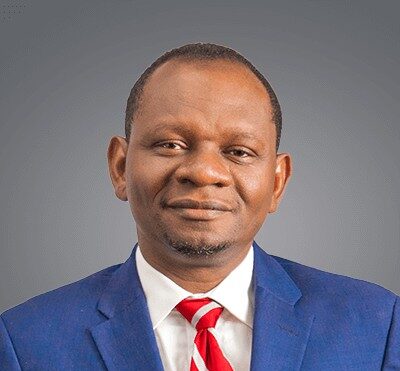
The National Primary Health Care Development Agency (NPHCDA) has outlined its priorities for repositioning Nigeria’s Primary Health Care (PHC) system to address critical health challenges.
The executive director, Dr. Muyi Aina stated this on Monday during an interview with journalists in Abuja.
Aina highlighted the agency’s top three objectives: improving PHC functionality and expanding coverage, enhancing the quality and capacity of health workers and implementing targeted interventions to reduce maternal and under-five mortality rates.
He disclosed that the agency aims to revamp PHCs by increasing the number of facilities under the Basic Health Care Provision Fund (BHCPF) from 8,400 to 17,600 in the coming years.
“This includes investing in dignified infrastructure, 24-hour services powered by solar energy, and accommodation for healthcare workers,” Aina said.
He added, “The president has demonstrated commitment by increasing the health sector budget for 2024, the highest allocation ever. This funding enables us to revitalise PHCs with better infrastructure, essential medicines, and motivated health workers.”
To address the shortage of healthcare workers, Aina noted that the agency has initiated a large-scale retraining program for 120,000 frontline health workers over four years.
“Already, 43,000 workers have been trained under this initiative. Efforts are also underway to improve retention by creating conducive working environments, providing accommodation, and offering special incentives for rural workers,” he said.
He further revealed that, in line with President Bola Tinubu’s commitment to reducing maternal mortality, the agency has launched the Maternal Mortality Reduction Initiative, which includes free cesarean sections for eligible Nigerians.
“PHCs are also being equipped to manage both infectious and non-communicable diseases, with services like diabetes and hypertension screening integrated into their operations,” he added.
Aina acknowledged previous challenges, such as inadequate funding and poor coordination among federal, state, and non-governmental actors.
However, he explained that the Federal Ministry of Health has introduced a sector-wide approach to unify efforts and optimise resources.
“The agency has also partnered with the Independent Corrupt Practices Commission and the Department of State Services (DSS) to ensure transparency and accountability in fund management,” he said.
Emphasising community involvement, Aina noted that the agency collaborates with community-based organisations and traditional leaders to drive sbehaviour change and expand service delivery.
Reacting to the agency’s ambitious goals and ongoing reforms, stakeholders expressed optimism, describing the plans as a potential turning point for Nigeria’s PHC system. The reforms aim to ensure that every Nigerian, regardless of location or income, has access to quality healthcare services.
A public health expert, Dr. Gabriel Adakole remarked that the NPHCDA’s focus on revitalising primary healthcare was long overdue, as PHCs remain the backbone of healthcare delivery in Nigeria.
“Expanding BHCPF facilities to 17,600 is commendable, but the real challenge will be ensuring consistent funding and effective management of these facilities. Without addressing corruption and inefficiencies in the health system, these plans could face setbacks,” he said.
A maternal health specialist, Dr. Amina Yusuf described the Maternal Mortality Reduction Initiative, particularly the provision of free cesarean sections, as a game-changer in reducing maternal deaths.
However, Yusuf cautioned that the initiative’s success would depend on adequately equipping and staffing rural PHCs. She also pointed out that retaining skilled health workers in underserved areas remains a significant hurdle, even with incentives like accommodation.
A health systems researcher, Dr. Tony Onwuchekwa praised the integration of chronic disease management into PHCs as a timely move, given the rising burden of non-communicable diseases in Nigeria.
“Training healthcare workers to handle both infectious and chronic diseases will require a comprehensive curriculum overhaul and sustained mentorship programs,” Onwuchekwa said.
A health economist, Dr. Ngozi Udochi noted that the president’s budgetary increase for healthcare was promising. However, she emphasised that the real test lies in the efficient allocation and utilisation of resources.
“Investing in solar-powered facilities and essential drugs is commendable, but regular audits and community involvement will be critical for sustainability,” she said.
A global health advocate, Dr. Fatima Bello commended the agency’s emphasis on transparency and accountability through partnerships with anti-corruption agencies.
“However, it is crucial to ensure these mechanisms are implemented at all levels, especially in rural areas, where fund mismanagement often goes unnoticed,” Bello added.

